June 2023 HCH Newsletter
The Connection

In this newsletter:
- Program Highlights
- Taiwan health care delegation visits Minnesota
- United Family Medicine
- Community Health Worker Scholarships Now Available!
- Benchmarking Update Effective July 1, 2023
- MNCARES Update
- Learning Update
- Congratulations to Certified and Recertified HCH!
- Do you have a Health Equity Story?
- Noteworthy
Program Highlights

The MDH Health Care Homes (HCH) team is excited to inform you that the HCH program was highlighted during a recent visit from a Taiwanese health care delegation. This visit recognized some of the amazing work being done by primary care providers.
A few other updates:
- Thank you to certified care systems who tested the new HCH benchmarking process and associated resources to ensure that the process works well and the resources support recertification.
- Many learning opportunities have been held in the last quarter, garnering overall positive feedback for the classes and events.
More information on these topics may be found below in this newsletter.
As always, we thank you for all the work you are doing to advance health equity and improve the health of all Minnesotans!
Taiwan health care delegation visits Minnesota
A delegation of health officials from Taiwan’s Health Promotion Administration, the Taiwan Medical Clinic Association, and the Taiwanese Association of Clinic Diabetes visited the Minnesota Department of Health (MDH) on June 20. The visit was part of an effort to learn about Minnesota’s world-leading diabetes care as well as the state’s Health Care Homes program.
The visit included presentations by Health Care Homes, the MDH Diabetes program, and the MN Department of Human Services (DHS) Integrated Health Partnerships (IHP). Each presentation included an opportunity for questions and discussion.
The delegation also met with Minnesota Commissioner of Health Dr. Brooke Cunningham, who spoke on the state’s multifaceted approach to preventing and treating diabetes, including certifying and supporting primary care clinics as Health Care Homes.
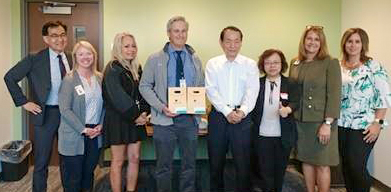 The day concluded with a visit to Entira Family Clinics – East Side Clinic, a certified HCH serving a diverse neighborhood in the east metro. Clinic staff provided a tour and led a discussion about their team-based approach to diabetes care and how their use of data and registries track and support this care. In a report released earlier this year by Minnesota Community Measurement, Entira Family Clinics was among nine other organizations recognized as a “top performers” in health care quality for 2021, including quality in diabetes care (also recognized in this report are the following HCHs: CentraCare Health, HealthPartners, Mankato Clinic, and Park Nicollet).
The day concluded with a visit to Entira Family Clinics – East Side Clinic, a certified HCH serving a diverse neighborhood in the east metro. Clinic staff provided a tour and led a discussion about their team-based approach to diabetes care and how their use of data and registries track and support this care. In a report released earlier this year by Minnesota Community Measurement, Entira Family Clinics was among nine other organizations recognized as a “top performers” in health care quality for 2021, including quality in diabetes care (also recognized in this report are the following HCHs: CentraCare Health, HealthPartners, Mankato Clinic, and Park Nicollet).
United Family Medicine
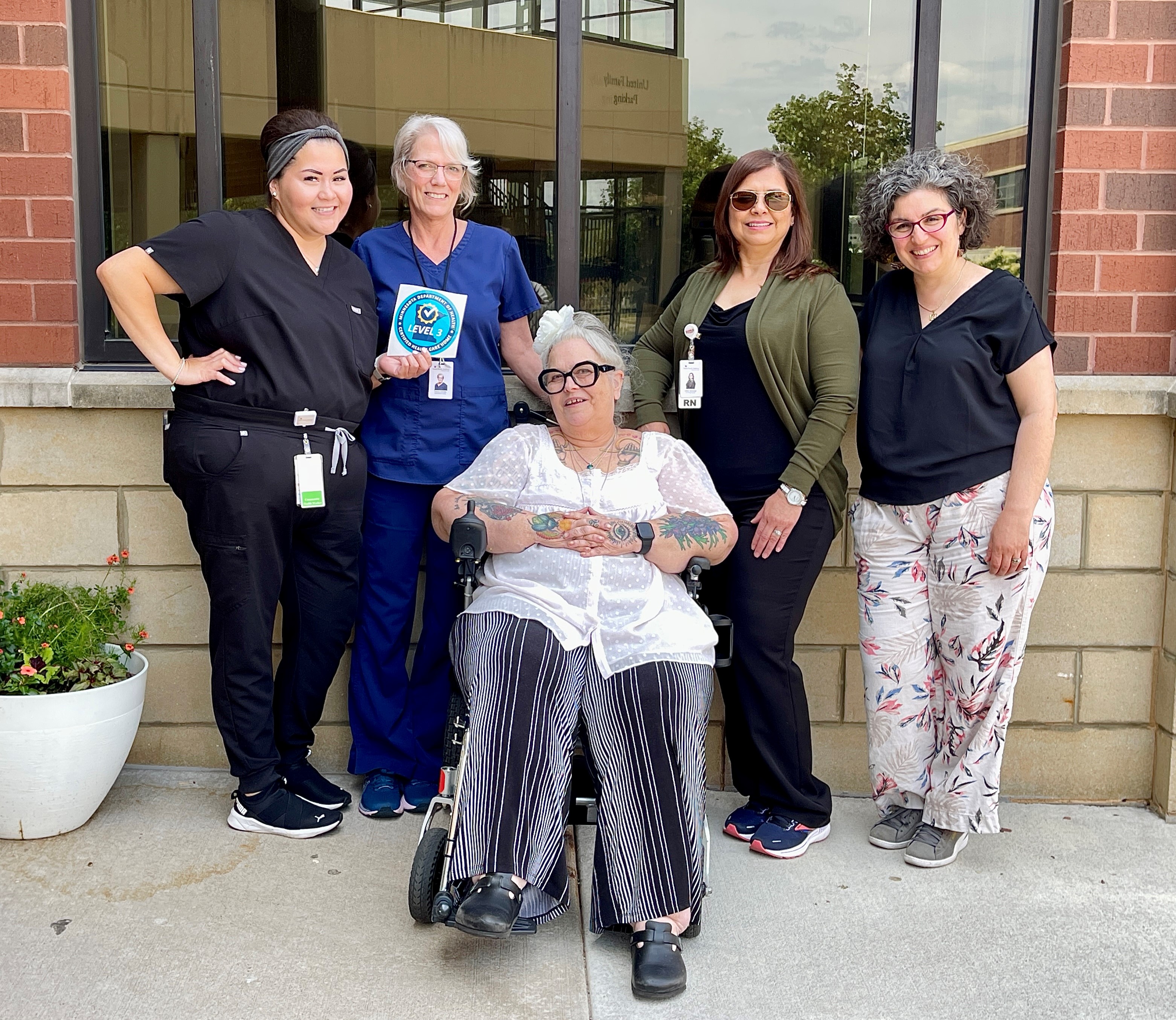
United Family Medicine (UFM) operates as a community health center and designated Federally Qualified Health Center (FQHC), providing comprehensive primary care, dental services, and behavioral health services to an under-resourced and diverse St. Paul neighborhood. The clinic recently achieved HCH recertification at Level 3.
UFM’s redesigned care teams better support patients and leverage the full potential of staff.
“Because we work as a care team, we collaboratively solve problems from multiple angles. For example, one of my patients was having trouble taking her meds. Our team worked together to solve the problem: The PCP pared down the med list. The MA obtained a release of information from a family member so we could share medication information with a caregiver. I called the pharmacy to make them aware of the issue so they could assist the patient in obtaining refills. Lastly, the patient and I organized her medication together in pill boxes. I believe that, through our collaborate work, we avoided a hospital visit for this patient.” Nadia Higgins, RN, UFM
Care teams are co-located in the primary care clinic and work closely to manage patient care and hand off to one another as needed. Each provider has a RN and MA assigned to them tasked with responsibilities that support panel management. These responsibilities include pre-visit planning, ensuring all follow-up tasks are completed after the visit, and handling between visit correspondences and outreach. A community health worker serves as the primary care coordinator and works with the patient, primary care provider, and the RN/MA to support patients with complex needs. The community health worker is also available to address any identified health-related social needs. A fully integrated behavioral health team supports patients with mental health or substance use issues, and because they are co-located in the clinic, are available to immediately address needs as they come up. Additional support is provided through a diabetes team that includes a diabetes educator and dietician.
Community health workers (CHWs) are increasingly being identified as an essential role in a health care team.
“Being a Community Health Worker has allowed me to positively affect vulnerable communities by serving as a liaison between medical and social services, being an advocate for change, and providing health care services that meet the social, cultural, and linguistic needs of those communities. UFM supports this mission by reinforcing its programs such as our HCH that creates an umbrella of support for those patients who need it the most.” Lupita Gedang, CHW, UFM
Because UFM screens all patients for health-related social needs every three months, a large part of the community health worker’s role is to address identified needs. “Our community health worker receives about six referrals a day resulting from positive screens and plays a pivotal role in facilitating and coordinating care for our patients. Health education and promotion is a large part of the CHW role, and she works closely with the PCP and other members of the care team to facilitate patient engagement. Community outreach is an important part of the work we do; to inform members of the community of the clinic’s services and to facilitate access to those services. The CHW works as an essential community partner and builds relationships with those community-based organizations that support our patients and communities.”
UFM’s patients face many barriers to achieving optimal health including financial, transportation, housing, food, language, and legal barriers.
“It is so nice to have someone looking out for me. Thank you for checking on me.” Patient, UFM
Transportation is a primary need that often impacts patient ability to access the clinic and keep appointments. To address this barrier, UFM has partnered with a taxi company to provide transportation, greatly increasing the number of patients able to keep their appointments, connect with their primary care provider and care team, and maintain that continuity of care that is so challenging to do yet so important in impacting health. Additional community partners have been identified to refer needs related to housing and food insecurity. And, through a partnership with a law school, the clinic can provide legal services on site two days per week to assist patients with immigration/citizenship, domestic issues, child support and housing concerns.
The HCH program thanks United Family Medicine for sharing their experiences and insight.
Community Health Worker Scholarships Now Available!
The Minnesota Community Health Worker Alliance (MNCHWA), in partnership with the Minnesota Department of Health (MDH), is offering 90 scholarships to individuals from diverse communities across Minnesota to complete the Community Health Worker (CHW) Certificate program. The scholarship program aims to strengthen and diversify the public health workforce to better meet the needs of under-resourced communities in Minnesota. Scholarships awarded may be used to pay for CHW Certificate programs and education related costs that start in or after August 2023. Students must be accepted to a college offering the CHW Certificate program to receive a scholarship. Scholarships are funded by the Health Resources and Services Administration (HRSA).
MNCHWA and MDH, in partnership with the Minnesota Department of Labor and Industry, are looking for employers interested in the registered apprenticeship program for CHWs. A Registered Apprenticeship Program is a career pathway where employers can develop and prepare their future workforce, and CHWs can obtain paid work experience combined with on-the-job learning and related classroom instruction. CHWS participating in a registered apprenticeship program may also be eligible for a HRSA grant-funded stipend.
Learn more about the Community Health Worker Training Program.
Benchmarking Update Effective July 1, 2023
![]()
MDH Health Care Homes is making changes in how clinics will meet the benchmarking requirement at HCH recertification. The requirement as currently defined paints a limited picture of what is going on in clinics and misses opportunities to learn more about the factors that drive – or are barriers to - improvement. Over the past several months we have worked to understand more about this and to develop a process that reflects clinic input.
Performance on standardized measures demonstrates accountability for outcomes and is a key component in defining the value of care a certified HCH is providing. Equally important is understanding the context and larger picture in which those outcomes exist. Organizational culture, the infrastructure of the care delivery system, and the factors that contribute to health in the patient population all have an impact on performance and is information that should be used in quality improvement plans. The updated HCH benchmarking process incorporates all these components to tell the story of process improvement at the certified HCH and to allow for MDH HCH staff to support that work.
The updated benchmarking process will use the recertification team meeting to facilitate the sharing of information about how your organization prioritizes measures, your performance on those measures and by which benchmarks you are using to assess that performance, and the process improvement work being done to impact outcomes. MDH HCH staff will still review publicly reported data to prepare for check ins and recertification visits, but clinics will have more control over the story they tell, and that’s the story we want to hear!
COMPASS has been updated to reflect these changes and the MDH website will soon be updated with additional information. Contact your clinic’s assigned Practice Improvement Specialist/Integration Specialist of the HCH program at Health.HealthCareHomes@state.mn.us with any questions or concerns.
MNCARES Update

The MNCARES study [Minnesota Care Coordination Effectiveness Study] moved into its fourth and final year this spring, so we are focusing on data analysis to learn what works best for care coordination patients and how to get that information out to care systems, clinics, and care coordinators—as well as patients. Highlights from the last quarter include:
Health Care Homes Learning Days on May 18th
We had a great time networking and meeting many care coordinators at this year’s Learning Days. We presented updates on MNCARES and summarized a few preliminary findings from the study, and we received great feedback from several care coordinators on questions of interest that we hope our study can help to answer. Thank you to everyone who engaged with the team and made this a successful event! We look forward to coming back in 2024.
Publications
Three papers on the study have recently been accepted for publication:
- “Care Coordination in Primary Care Clinics: Mapping the Territory” by Leif Solberg and colleagues will be published this fall in the American Journal of Managed Care. This paper describes how Minnesota care systems have organized care coordination. For example, we found that larger care systems were more likely to include a social worker on their care coordination team but were no more likely than small systems to assess and make referrals for social needs.
- “The Impact of COVID-19 on Patients Receiving Care Coordination in Primary Care: A Qualitative Study” by Robin Whitebird and colleagues will appear in the Journal of the American Board of Family Medicine. These interviews with care coordination patients reported that care coordinators were seen as providing the communication, connections, and support that they needed during the pandemic.
- “The Role of Care Coordination: A Qualitative Study of Care Coordinator Perceptions” by Megan JaKa and colleagues will be in the Journal of Nursing Care Quality. This paper documented the large variations in the way clinics provide care coordination, the importance of their communications skills, and the necessity for care team and leader buy-in and support.
As links and citation information become available, they will be shared in this newsletter or through other types of communication.
We welcome all input on what you would hope to learn as well as how it is best to get that out to you. If you have any questions, please contact mncares@healthpartners.com .
Learning Update
![]()
Learning Days 2023: Together Again!
Close to 200 Health Care Homes stakeholders and community partners gathered in St. Cloud on May 18 for a full day of learning and networking – our first in person gathering since 2019. It was so good to be together again!
Dr. Julia Joseph-Di Caprio, founder of Leap Pediatric and Adolescent Care, kicked things off with her story about how she is reinventing primary care to meet the needs of her St. Paul community. The day also featured breakout sessions on a variety of primary care topics, an update from HealthPartners on the MNCARES Study, which compares two models of care coordination, and a lively networking session on care coordination topics. Dr. David Satin, University of Minnesota, closed the day with an inspiring message about the Top Ten Moral Imperatives for Clinical Quality Post-COVID.
Throughout the day, participants had ample opportunity to interact with our sponsors and exhibitors and most importantly, with each other! Feedback on the day has been very positive, and next year will be even better!
Visit the Learning Days web pages to learn more about Learning Days and view the gallery of graphic recordings and photos.
Can’t wait to see you next year!
Motivational Interviewing Skills Refresher
Health Care Homes hosted two free day-long in-person workshops on May 18 in Mankato and June 22 in St. Cloud. Nearly 60 Health Care Homes stakeholders and community partners took advantage of this unique opportunity to focus on the principles and techniques of Motivation Interviewing, an Evidence Based Practice designed to help facilitate and support patient change.
Updated Foundations of Health Care Homes E-Learning
An updated version of the Foundations of Health Care Homes Certification e-learning course is available on the MDH Learning Center. The course covers the HCH progression model and the standards and requirements for certification and recertification as a Health Care Home. The course is designed for primary care providers considering HCH certification, as a resource for clinical staff in the certification or recertification process, and as an orientation for care team members to learn about the HCH model.
The nine-chapter course is free, accessible on demand, and worth 3.5 credit hours for those who complete the entire course. To access the course, log in to the MDH Learning Center and search for Foundations of Health Care Homes Certification. Additional information and resources are available on the HCH website.
Congratulations to Certified and Recertified HCH!
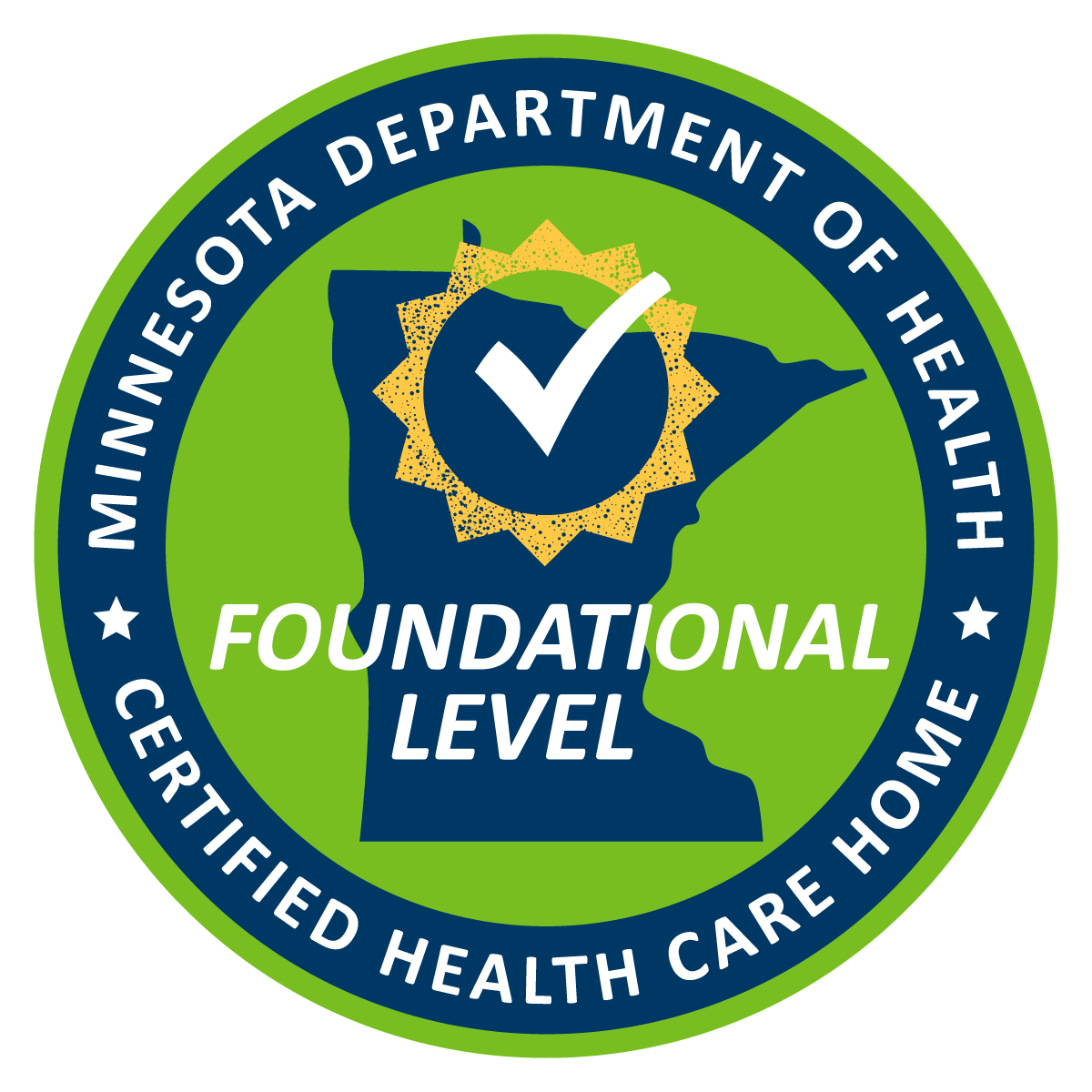
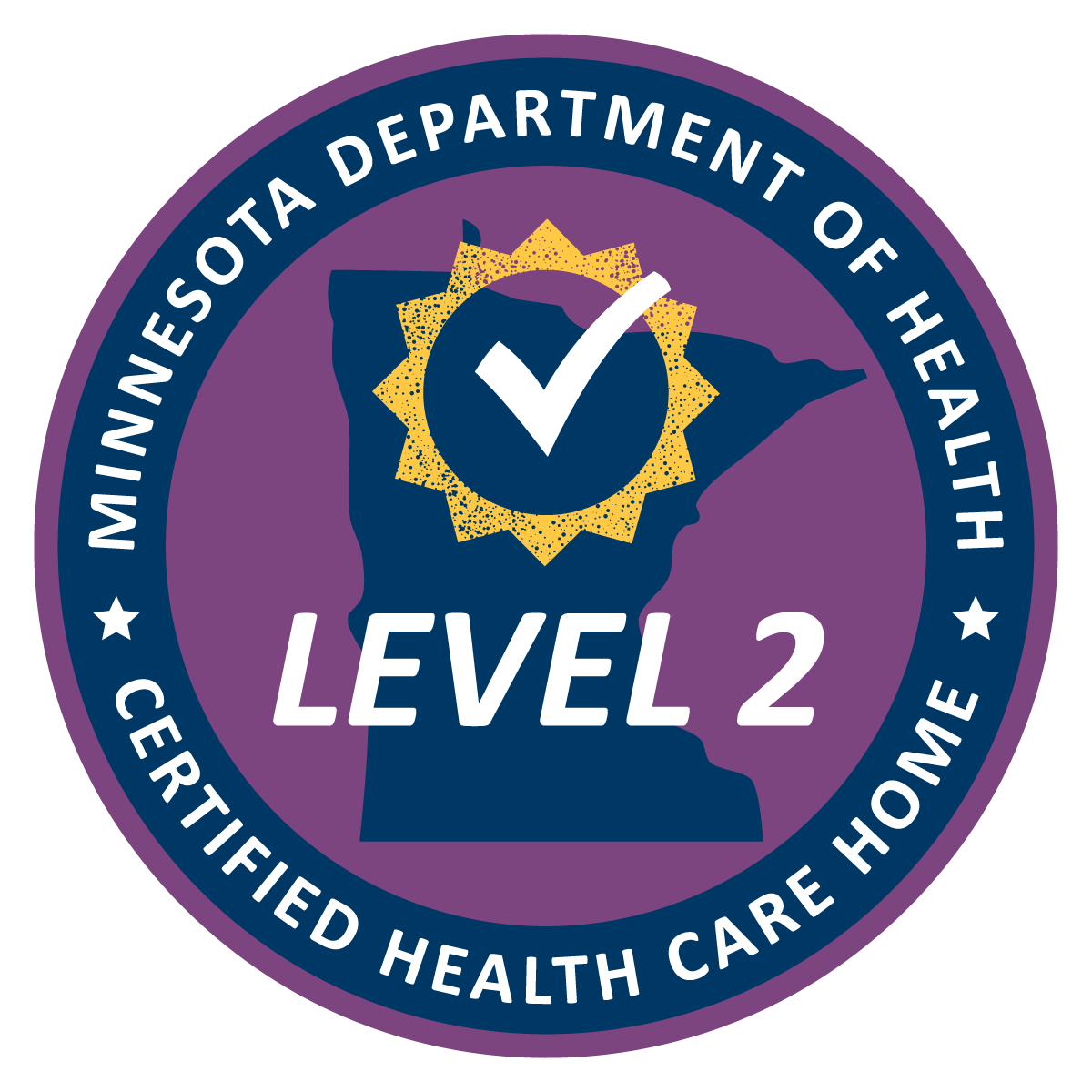
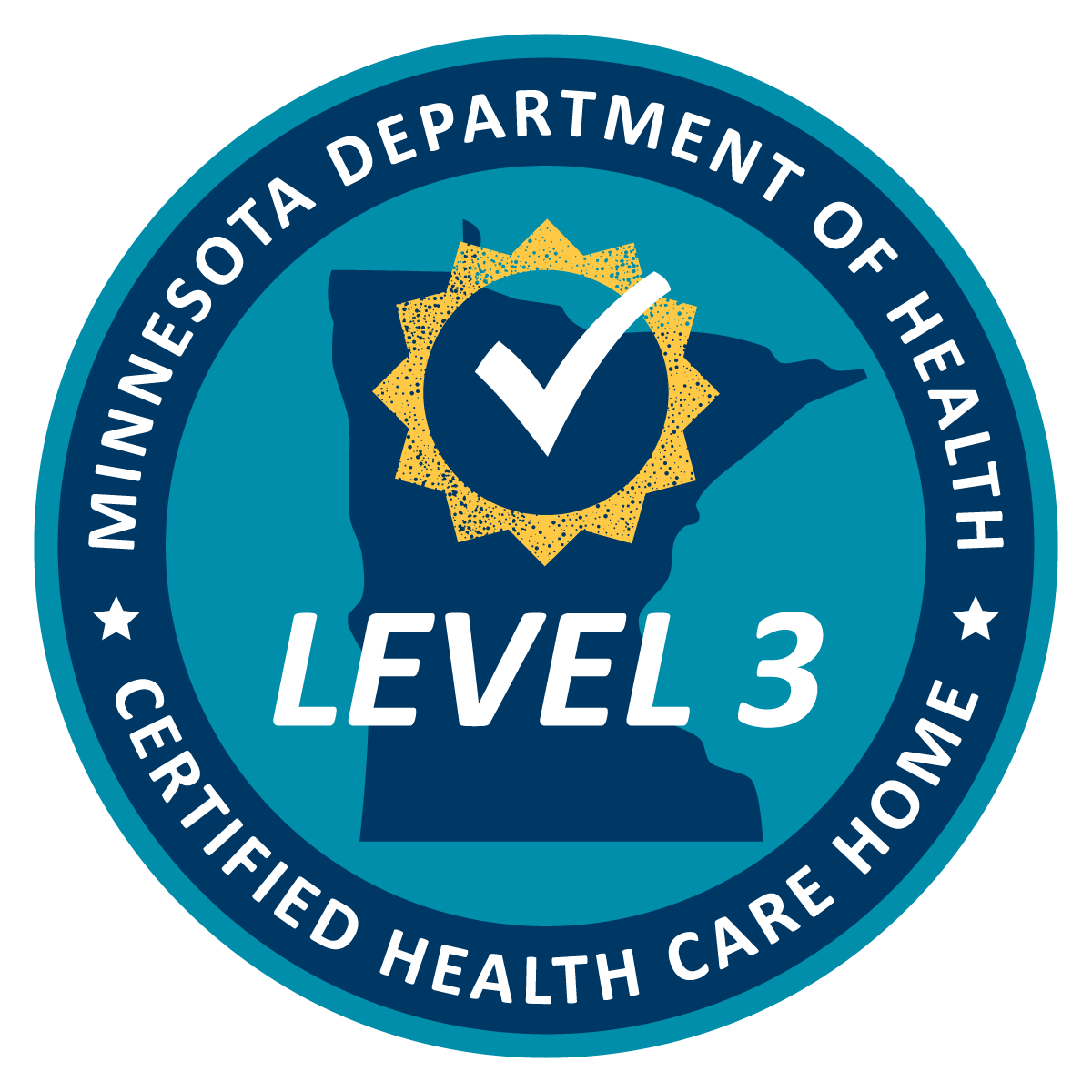
Clinics certifying and recertifying April - June 2023 are listed below. Congratulations to these and other certified clinics working every day to provide better health and better care at lower costs!
For more information regarding HCH certification levels, please go to the Level Progression webpage.
For a complete list of HCH certified clinics, please go to the Find Certified Health Care Homes webpage.
Spread Clinics
Astera Health
- Foundational Level - one clinic
CentraCare Health System
- Foundational Level - one clinic
Entira Family Clinics
- Foundational Level - one clinic
Lake Region Healthcare Clinic Services
- Foundational Level - five clinics
Scenic Rivers Health Services
- Foundational Level - one clinic
Recertification
Madelia Community Hospital and Clinic
- Foundational Level - three clinics
Mayo Clinic
- Foundational Level - seven clinics
Open Door Health Center
- Level 3 - one clinic
Richfield Medical Group
- Foundational Level - one clinic
United Family Medicine
- Level 3 - one clinic
Do you have a Health Equity Story?
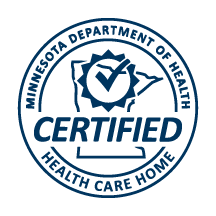
Certified Health Care Homes -
Do you have a Health Equity Story that you would like highlighted in the HCH newsletter?
Download the Health Equity Story Form and follow instructions for submission.
Noteworthy

- CMS (Centers for Medicare & Medicaid Services) announced a multi-state initiative to strengthen primary care. A new primary care model – the Making Care Primary (MCP) Model – will be tested in eight states, including Minnesota. MCP is an important step in strengthening the primary care infrastructure in the country, especially for safety net and smaller or independent primary care organizations. Please visit the MCP webpage for more information.
- In an ongoing effort to address suicide prevention, MDH released the 2023-2027 Minnesota State Suicide Prevention Plan . More information may be found on the Suicide Prevention Minnesota State Plan website.
- The 2023 County Health Rankings National Findings Report provides an annual snapshot of the health of the nation’s counties through the lens of more than 90 factors – from housing, education, jobs, and more. Further information may be found on the University of Wisconsin Population Health Institute website.